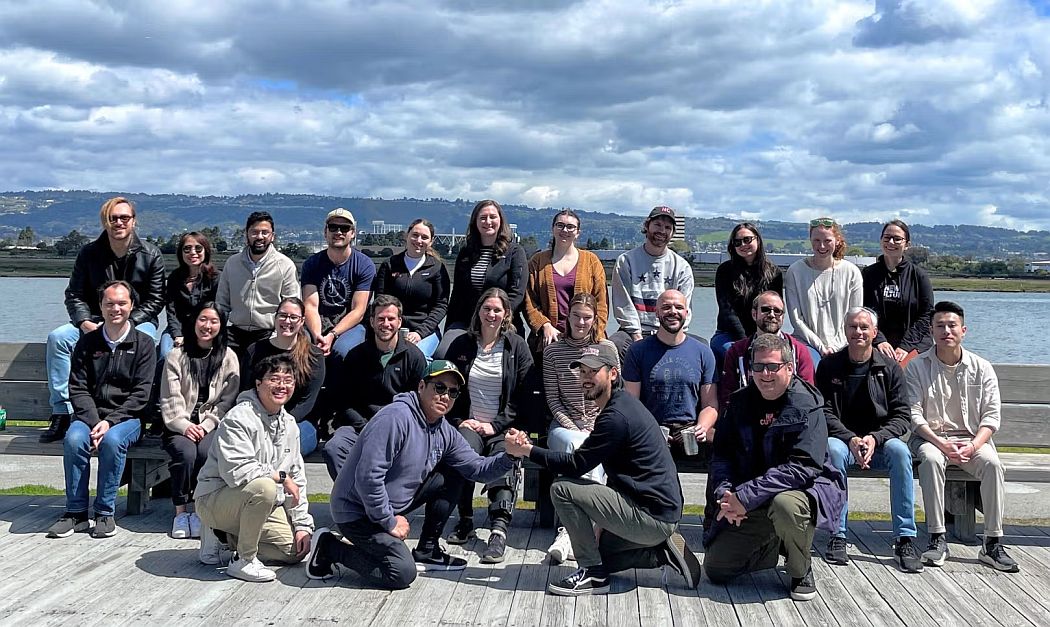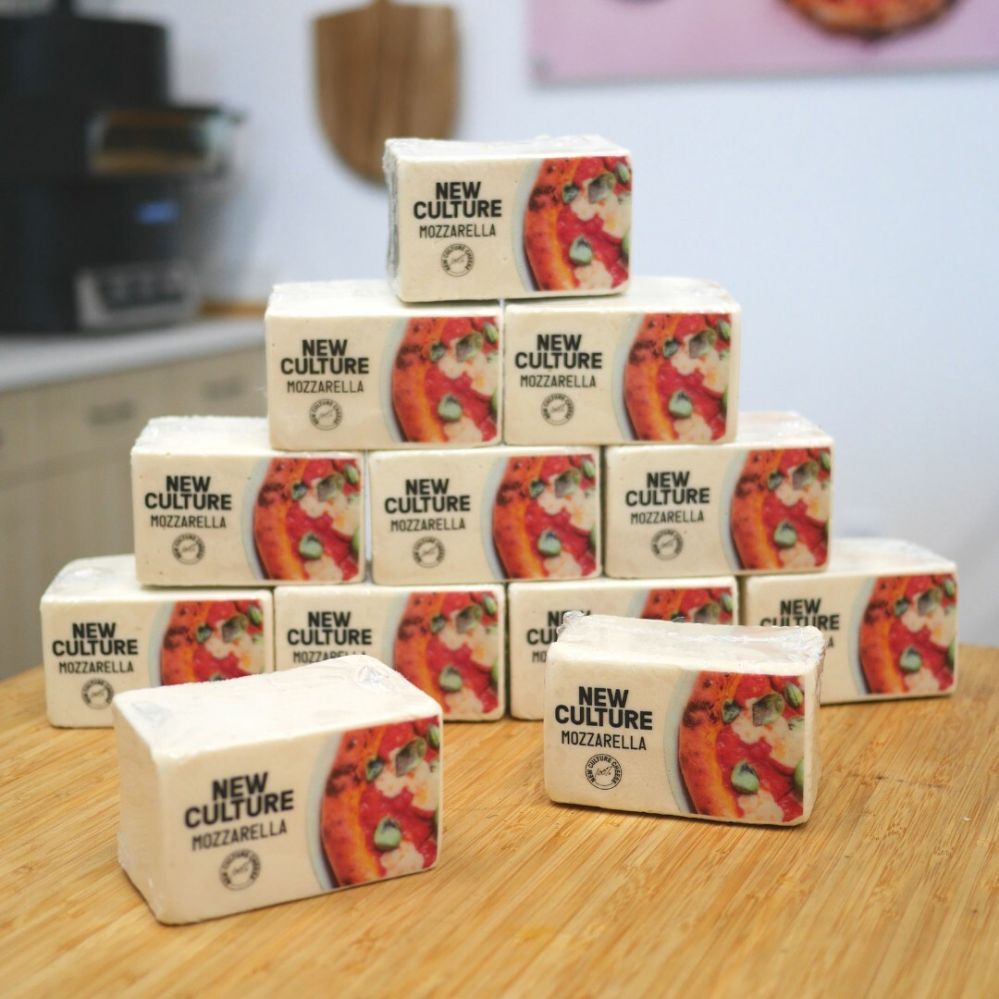New Culture —a startup making casein proteins via precision fermentation to create ‘animal-free’ mozzarella—says it can now make fully functional cheese with 50% less casein than conventional mozzarella.
“This new inclusion rate further proves New Culture’s financial viability,” founder and CEO Matt Gibson told AgFunderNews. “This new inclusion rate further proves New Culture’s financial viability. With this reduction we’ve hit an essential milestone on our path to achieving cost parity with conventional mozzarella and reaching positive net margins.”
According to Gibson, New Culture’s sensory and analytical testing shows its animal-free mozzarella rivals dairy mozzarella on 15 key attributes such melt and stretch for pizza and mouthfeel and flavor for salads), with half the casein.
He would not say how many of the four key casein proteins (alpha-S-1, alpha-S-2, beta, and kappa) New Culture is using or why individual casein proteins or combinations thereof would deliver superior functionality than all four locked into a dairy milk matrix.
There’s a lot in milk that’s not necessary or useful to make great cheese
But he added: “Due to the superior functionality of our casein protein, we can make restaurant-quality mozzarella with 50%+ less casein than conventional mozzarella. There’s a lot in milk that’s not necessary or useful to make great cheese. So with our approach we’re able to include only those ingredients—in addition to our casein—that matter most for the taste, texture and functionality of mozzarella.”
Asked how the firm had been able to make progressive reductions in the casein inclusion rate without sacrificing quality or functionality, he said: “When we started making animal-free cheese, we used the ingredient profile of conventional mozzarella as our benchmark.
“However, over time we experimented with proportions, pushing and pulling on certain ingredients to see the impact on the final product. We saw that as we dropped the casein inclusion rate, product quality wasn’t taking a hit. That’s thanks to the superior melt, stretch and mouthfeel properties that our casein provides.”
Partnerships with ADM and CJ CheilJedang
While some commentators have questioned the commercial viability of precision fermentation for some ‘commodity’ dairy and egg proteins, Gibson claimed that New Culture has been “able to achieve technical metrics unheard of for animal-free casein and demonstrated a robust, reproducible and de-risked bioprocess at scale.”
It currently works with external partners that produce enough casein to make mozzarella for a few thousand pizzas as it gears up for commercial launch at Nancy Silverton’s upmarket pizza chain Pizzeria Mozza in Los Angeles.
For large-scale production, it has struck strategic partnerships biomanufacturing giants CJ CheilJedang and ADM, said Gibson, who secured self-GRAS (Generally Recognized as Safe) status for New Culture’s casein proteins in February.
“The dairy industry is so large though that even if we were to work with both CJ and ADM at their massive commercial scales in parallel, we’d be net margin positive and producing millions of pounds of cheese, but still only scratching the surface of the $9 billion US mozzarella market.”
Go to market strategy
New Culture is building a consumer brand and will initially be selling its branded mozzarella to pizzerias, starting with Pizzeria Mozza in Los Angeles, explained Gibson.
Asked about the timing of the launch—something the company had previously signaled would happen before the end of the year—Gibson said: “Launching not only a new product but an entirely new product category isn’t a straight line. A few factors have been tough to anticipate, including securing certain permits as a non-conventional dairy company.”

Animal-free dairy
There is no formal definition of ‘animal-free’ dairy, but it typically refers to products made with whey, casein, or dairy fats that are produced without cows, either via genetically engineered microbes that feed on sugars in fermentation tanks; or via genetically engineered crops such as soybeans.
Making ‘real’ dairy ingredients without cows, argue evangelists, offers the best of both worlds: the nutrition and functionality of dairy ingredients without the ethical and environmental drawbacks of industrialized animal agriculture.





